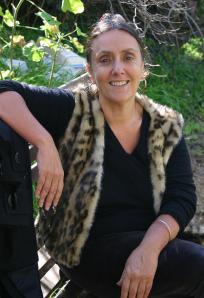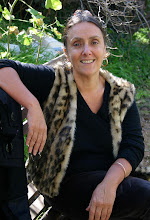Loss of Soul: Identity and The Stories We Tell by Kaalii Cargill
Reblogged from Feminism and Religion

The effects on the world of the loss of the Feminine, the loss of Soul, are incalculable. Instinctive knowledge of the holy unity of things, reverence for the interconnection of all aspects of life, trust in the power of the imagination and the faculty of the intuition — all this as a way of relating to life through participation rather than through dominance and control, has almost been lost. We can see the effects of this loss of soul everywhere today, not only in the devastation and pollution of vast swathes of the earth, but in the unhappy, impoverished and hopeless existence that people endure in the hideous and ever-expanding suburbs of our cities, in the increase of diseases like cancer, diabetes and mental illness — particularly depression. The old are neglected and even ill-treated in a culture more interested in achieving targets than caring for people. The young are offered nothing to aspire to beyond the material goals promoted by the media.
- Anne Baring, 2013. Awakening to the Feminine. Archive Publishing. Extract from Chapter 10 in “The Dream of the Cosmos: a Quest for the Soul.”
I want to discuss a specific part of that hugely important statement by Anne Baring:
The young are offered nothing to aspire to beyond the material goals promoted by the media.
I have read some of the current crop of novels that have been developed into movies appealing to young people: The Twilight Saga, The Mortal Instruments, The Hunger Games, Divergent. What is being promoted in these stories? Is it reverence for the interconnection of all aspects of life? Trust in the power of the imagination? Trust in the faculty of the intuition?
Mostly what is being promoted in those stories is the ethos of “kill or be killed”, survival of the fittest, and the bleak challenges of a post apocalyptic world or a fantasy world of inter-species warfare. And the central characters are often aged around 16 or 17.
Do the authors think beyond writing the next best seller or selling movie rights? Do they even consider the messages they are promoting to this generation of teenagers?
It is not surprising that parents, teachers, and therapists are reporting an increase in debilitating anxiety among teenagers. As well as the increasing complexity of real life stress, there is also the “hypothetical stress” of teenagers measuring themselves against Katniss Everdine (Hunger Games) or Tris (Divergent): If I were in that situation would I survive? Would I have the courage, stamina, will to kill or be killed?
And weaving its seductive way through the stories is the theme of starcrossed lovers. The Twilight Saga took that to absurd lengths, but it is there in all the popular fiction and movies, linking first love to fundamental issues of survival (kill or be killed). What are we thinking when we serve this up as daily fare to our teenagers (and ourselves)?
Our teenage years are a time of identity formation, taking on values and behaviours from others and trying them on to find what fits and what doesn’t. This is a life-long process, but teenagers are particularly receptive to this process of identity formation.
Where are the messages of reverence for the interconnectedness of aspects of life? For trust in the power of the imagination and the faculty of intuition?
One example is James Cameron’s 2009 movie Avatar, an action-adventure story that goes some way towards incorporating this with self-discovery in the context of imperialism and deep ecology. A pity that the main characters weren’t 16 or 17 years old.
Another example is a Young Adult fantasy trilogy by Laini Taylor. The first book is called Daughter of Smoke and Bone. It has starcrossed lovers and sections of “kill or be killed”, but it also asks the reader to consider the complexity of love and hate and to invest in an overarching theme of interconnectedness. Unfortunately this is all too rare in the most popular examples of the genre.
So this is a plea for more care with the stories we are telling ourselves and our precious young. A plea for stories that grip the imagination and also promote “reverence for the interconnection of all aspects of life, trust in the power of the imagination and the faculty of the intuition”, stories that invite young people to dream of relating to life through participation and relatedness rather than win or lose, pass or fail, kill or be killed.
Dr. Kaalii Cargill is a ‘physician of the soul’, living and working in Melbourne, Australia. In the 1980s she co-developed Soul Centred Psychotherapy, a therapeutic modality based on a profound respect for the feminine principle. www.kairoscentre.com. Kaalii’s engagement with ritual has spanned 25 years and includes participating in regular women’s circles and seasonal rituals, teaching therapeutic ritual, running initiation rituals, and sponsoring the development of ongoing ‘Moon groups’. Her work draws from the ancient mystery traditions of Sumer, Greece, and Egypt as well as the Reclaiming tradition. Kaalii writes fiction and non-fiction that asks, “What if . . .?” The themes of her writing emerge from the Goddess movement and political activism, with a focus on dismantling and resisting structures of power and domination and actively honouring and defending the Earth and the feminine principle. Her short stories have been published in international magazines, and she has 5 books available on Amazon. http://kaalii.wix.com/soulstory

No comments:
Post a Comment
Comments and discussion always welcome . . .